- Home
- John le Carré
The Pigeon Tunnel: Stories From My Life Page 19
The Pigeon Tunnel: Stories From My Life Read online
Page 19
Elliott on Sir Claude Dansey, also known as Colonel Z, Deputy Chief of MI6 during the Second World War:
‘Utter shit. Stupid too. But tough and rude. Wrote these awful short minutes to people. Carried on feuds. I mean a real shit. I took over his networks when I became Head of Station in Bern after the war. Well he did have these high-level business sources. They were good. He had a knack of getting these businessmen to do things for him. He was good at that.’
On Sir George Young, Vice Chief to Sir Dick White during the Cold War:
‘Flawed. Brilliant, coarse, always had to be out on his own. He went to Hambro’s [Bank] after the Service. I asked them later: how did you make out with George? Were you up or down? They said they reckoned about even. He got them some of the Shah’s money, but he made perfectly awful balls-ups that cost them about as much as he got for them.’
On Professor Hugh Trevor-Roper, historian and wartime member of SIS:
‘Brilliant scholar, all that, but wet and useless. Something perverse inside him. Laughed my head off when he took a dive on those Hitler diaries. The whole Service knew they were fake. But Hugh walked straight in. How could Hitler have written them? I wouldn’t have the chap near me in the war. When I was head man in Cyprus I told my sentry at the door that if a Captain Trevor-Roper showed up, he should shove his bayonet up his arse. He showed up, the sentry told him what I’d said. Hugh was puzzled. Belly-laughs. That’s what I liked about the Service. Marvellous belly-laughs.’
On providing a prostitute for a potential SIS asset from the Middle East:
‘St Ermin’s Hotel. She wouldn’t go. Too near the House of Commons. “My husband’s an MP.” She had to have Fourth of June off so that she could take her boy out from Eton. “Well, perhaps you’d rather we got someone else?” I said. Didn’t hesitate. “All I want to know is, how much?”’
On Graham Greene:
‘I met him in Sierra Leone in the war. Greene was waiting for me at the harbour. “Have you brought any French letters?” he yelled at me as I came within earshot. He had this fixation about eunuchs. He’d been reading the station codebook and found that the Service actually had a code group for eunuch. Must have been from the days when we were running eunuchs in the harems as agents. He was dying to make a signal with eunuch in it. Then one day he found a way. Head Office wanted him to attend a conference somewhere. Cape Town I think. He had some operation fixed or something. Not an operation, knowing him, he never mounted one. Anyway he signalled back “Like the eunuch I can’t come.”’
A wartime reminiscence of life in Turkey under diplomatic cover:
‘Dinner at the Ambassador’s. Middle of the war. Ambassadress lets out a yell because I’ve cut off the nose. “Nose of what?” “The cheese.” “The valet handed me the bloody cheese,” I tell her. “And you cut the nose off it,” she says. Hell did they get it from? Middle of the bloody war. Cheddar. And the chap who’d handed it to me was Cicero,* the fellow who sold all our secrets to the Abwehr. The D-Day landings. The lot. And the Huns didn’t believe him. Typical. No faith.’
I am describing to Elliott how, while I was in MI5, Graham Greene’s Our Man in Havana was published and the Service’s legal adviser wanted to prosecute him under the Official Secrets Act for revealing the relationship between a head of station and his head agent.
‘Yes, and he jolly nearly got done for it. Would have served him bloody right.’
And most memorable of all, perhaps, Elliott recalling a passage from his early soundings of Philby concerning his Cambridge days:
‘“They seem to think you’re a bit tarnished somehow,” I say.
‘“By?”
‘“Oh, you know, early passions, membership –”
‘“Of?”
‘“Jolly interesting group, actually, by the sounds of it. Exactly what university is for. Lefties all getting together. The Apostles,* wasn’t it?”’
In 1987, two years before the Berlin Wall came down, I was visiting Moscow. At a reception given by the Union of Soviet Writers, a part-time journalist with KGB connections named Genrikh Borovik invited me to his house to meet an old friend and admirer of my work. His name, when I enquired, was Kim Philby. I now have it on pretty good authority that Philby knew he was dying and was hoping I would collaborate with him on his second volume of memoirs, the very book that Elliott was convinced he had up his sleeve. In the event, I declined to meet him. Elliott was pleased with me. At least I think he was. But perhaps he had secretly hoped, all the same, that I might bring him news of his old pal.
He had fed me a sanitized version of his last encounter with Kim Philby, and of his supposed suspicions about him in the years leading up to it. The truth, for which we must thank Ben Macintyre, is that ever since Philby had come under suspicion, Elliott had fought tooth and nail to protect his closest friend and colleague. Only when the case against Philby could no longer be denied did Elliott exert himself to obtain a confession – and a partial one at best – from his old pal. Whether by then he was under orders to give Philby the space to make good his escape to Moscow, we’ll probably never know for sure. Whether he was or not, he fooled me, just as he was fooling himself.
25
Quel Panama!
In 1885, France’s gargantuan efforts to build a sea-level canal across the Darien ended in disaster. Small and large investors of every stamp were ruined. In consequence there arose across the country the pained cry of ‘Quel Panama!’ Whether the expression has endured in the French language is doubtful, but it speaks well for my own association with that beautiful country, which began in 1947 when my father Ronnie dispatched me to Paris to collect five hundred pounds from the Panamanian Ambassador to France, one Count Mario da Bernaschina, who occupied a sweet house in one of those elegant side roads off the Elysées that smell permanently of women’s scent.
It was evening when I arrived by appointment on the ambassadorial doorstep wearing my grey school suit, my hair brushed and parted. I was sixteen years old. The Ambassador, my father had advised me, was a first-class fellow and would be happy to settle a longstanding debt of honour. I wanted very much to believe him. Earlier in the day I had undertaken a similar errand to the George V Hotel, and it had not met with success. The hotel concierge, one Anatole, another first-class fellow, was looking after Ronnie’s golf clubs. I should slip Anatole ten pounds for himself – a massive sum in those days and virtually all the money that Ronnie had given me for the trip – and in return Anatole would hand me the clubs.
But Anatole, having pocketed the ten pounds and enquired tenderly after Ronnie’s health, regretted that, dearly as he would wish to release the clubs, he was under instructions from the management to withhold them until Ronnie paid his bill. A reverse-charge phone call to London had failed to resolve the matter.
God in Heaven, son, why didn’t you send for the manager? Do they think your old man wants to diddle them, or what?
Of course not, Father.
The front door to the elegant house was opened by the most desirable woman I had ever seen. I must have been standing one step beneath her, because in my memory she is smiling down on me like my angel redeemer. She was bare-shouldered, black-haired and wore a flimsy dress in layer after layer of chiffon that failed to disguise her shape. When you are sixteen, desirable women come in all ages. From today’s vantage point I would put her at a blossoming thirty-something.
‘You are Ronnie’s son?’ she asked incredulously.
She stood back to let me brush past her. Laying a hand on each of my shoulders, she scrutinized me playfully from head to toe under the hall light and seemed to find everything to her satisfaction.
‘And you have come to see Mario,’ she said.
If that’s all right, I said.
Her hands remained on my shoulders while her eyes of many colours continued to study me.
‘And you are still a boy,
’ she remarked, as a kind of memo to herself.
The Count stood in his drawing room with his back to the fireplace, like every ambassador in every movie of the time: corpulent, in a velvet jacket, hands behind him and that perfect head of greying hair they all had – marcelled we used to call it – and the curved handshake, man to man, although I’m still a boy.
The Countess – for so I have cast her – doesn’t ask me whether I drink alcohol, let alone whether I like daiquiri. My answer to both questions would anyway have been a truthless ‘yes’. She hands me a frosted glass with a speared cherry in it, and we all sit down in soft chairs and do a bit of ambassadorial small talk. Am I enjoying the city? Do I have many friends in Paris? A girlfriend perhaps? Mischievous wink. To which I no doubt give compelling and mendacious answers that make no mention of golf clubs or concierges, until a pause in the conversation tells me it’s time for me to broach the purpose of my visit which, as experience has already taught me, is best done from the side rather than head on.
‘And my father mentioned that you and he had a small matter of business to complete, sir,’ I suggest, hearing myself from a distance on account of the daiquiri.
I should here explain the nature of that small matter of business which, unlike so many of Ronnie’s deals, was simplicity itself. As a diplomat and a top ambassador, son – I am echoing the enthusiasm with which Ronnie had briefed me for my mission – the Count was immune from such tedious irritations as taxation and import duty. The Count could import what he wished, he could export what he wished. If someone, for instance, chose to send the Count a cask of unmatured, unbranded Scotch whisky at a couple of pence a pint under diplomatic immunity, and the Count were to bottle that whisky and ship it to Panama or wherever else he chose to ship it under diplomatic immunity, that was nobody’s business but his.
Equally, if the Count chose to export the said unmatured, unbranded whisky in bottles of a certain design – akin, let us imagine, to Dimple Haig, a popular brand of the day – that too was his good right, as was the choice of label and the description of the bottle’s contents. All that need concern me was that the Count should pay up – cash, son, no monkey business. Thus provided, I should treat myself to a nice mixed grill at Ronnie’s expense, keep the receipt, catch the first ferry next morning and come straight to his grand offices in the West End of London with the balance.
‘A matter of business, David?’ the Count repeated in the tone of my school housemaster. ‘What business can that be?’
‘The five hundred pounds you owe him, sir.’
I remember his puzzled smile, so forbearing. I remember the richly draped sofas and silky cushions, old mirrors and gold glint, and my Countess with her long legs crossed inside the layers of chiffon. The Count continued to survey me with a mixture of puzzlement and concern. So did my Countess. Then they surveyed each other as if to compare notes about what they’d surveyed.
‘Well, that’s a pity, David. Because when I heard you were coming to see me I rather hoped you might be bringing me a portion of the large sum of money I have invested in your dear father’s enterprises.’
I still don’t know how I responded to this startling reply, or whether I was as startled as I should have been. I remember briefly losing my sense of time and place, and I suppose this was partly induced by the daiquiri, and partly by the recognition that I had nothing to say and no right to be sitting in their drawing room, and that the best thing I could do was make my excuses and get out. Then I realized that I was alone in the room. After a while, my host and hostess returned. The Count’s smile was genial and relaxed. The Countess looked particularly pleased.
‘So, David,’ said the Count, as if all were forgiven. ‘Why don’t we go and have dinner and talk about something more pleasant?’
They had a favourite Russian restaurant fifty yards from the house. In my memory it is a tiny place and we are the only three people in it, save for a man in a baggy white shirt who plucked at a balalaika. Over dinner, while the Count talked about something more pleasant, the Countess kicked off a shoe and caressed my leg with her stockinged toe. On the tiny dance floor she sang ‘Dark Eyes’ to me, holding the length of me against her and nibbling my earlobe while she flirted with the balalaika man and the Count looked indulgently on. On our return to the table the Count decided that we were ready for bed. The Countess, by a squeeze of my hand, seconded the motion.
My memory has spared me the excuses I made, but somehow I made them. Somehow I found myself a bench in a park, and somehow I contrived to remain the boy she had declared me to be. Decades later, finding myself alone in Paris, I tried to seek out the very street, the house, the restaurant. But by then, no reality would have done them justice.
Now I am not pretending that it was the magnetic force of the Count and Countess that half a century later drew me to Panama for the space of two novels and one movie; merely that the recollection of that sensuous, unfulfilled night remained lodged in my memory, if only as one of the near-misses of interminable adolescence. Within days of my arrival in Panama City I was enquiring after the name. Bernaschina? Nobody had heard of the fellow. A Count? From Panama? It seemed most improbable. Maybe I had dreamed the whole thing? I hadn’t.
I had come to Panama to research a novel. Unusually, it already had a title: The Night Manager. I was looking for the sort of crooks, smooth talkers and dirty deals that would brighten the life of an amoral English arms seller named Richard Onslow Roper. Roper would be a high-flyer where my father Ronnie had been a low one who frequently crashed. Ronnie had tried selling arms in Indonesia and gone to jail for it. Roper was too big to fail, until he met his destiny in the shape of a former Special Forces soldier turned hotel night manager named Jonathan Pine.
With Pine as my secret sharer, I had found a hideaway for Pine and his mistress amid the splendours of Luxor; explored the luxury hotels of Cairo and Zurich, and the forests and goldmines of northern Quebec province; thence to Miami to seek the advice of the US Drug Enforcement Administration, who assured me that there was no finer place for Roper to go about a drugs-for-arms deal than Panama’s free zone of Colón at the western gateway to the Canal. In Colón, they said, Roper could be assured of all the official inattention his project demanded.
And if Roper wished to stage an ostentatious demonstration of his wares without arousing needless interest? I asked. Panama again, they said. Go for the central mountains. Nobody asks questions up there.
In a dripping Panamanian hill forest near the Costa Rican border, an American military adviser – now retired, he insists – gives me the tour of a grisly encampment where CIA instructors once trained the Special Forces of half-a-dozen Central American countries in the days when the United States was supporting every narco-tyrant in the region in its fight against whatever passed for communism. At the tug of a wire, bullet-spattered targets, garishly painted, lurch out of the undergrowth: a Spanish colonial lady with bared breasts, toting a Kalashnikov; a bloodied pirate with tricorn and raised cutlass; a little red-haired girl, her mouth open in a scream that is supposed to say ‘Don’t shoot me, I’m a child.’ And at the forest’s edge, wooden cages for the camp’s trapped wild animals: mountain tigers, jungle cats, bucks, snakes, monkeys, all starved to death and rotting in their cells. And in a filthy aviary, the remains of parakeets, eagles, cranes, kites and vultures.
To teach the boys to be fierce, my guide explains. To teach them to be heartless.
In Panama City, a courtly Panamanian named Luis escorts me to the Palace of the Herons to meet the reigning President Endara. On our way to the Palace he regales me with the scandals of the day.
The traditional herons that I would see strutting the Palace forecourt are not the descendants of many generations of heron, as popularly supposed. They are impostors, says Luis with pretended indignation, smuggled into the Palace at dead of night. When President Jimmy Carter came to visit his Panamanian colleague, his Secre
t Service men had sprayed the Palace with disinfectant. By nightfall the entire flock of presidential herons lay dead in the forecourt. Substitute birds of no known provenance, netted in Colón, were flown in by passenger plane minutes before Carter’s arrival.
Endara, recently widowed, married his mistress within months of his first wife’s demise, Luis rattles on. The President is fifty-four, his bride, a student at Panama University, twenty-two. Panama’s press are making sport of the event, dubbing Endara ‘El Gordo Feliz’, or ‘Happy Fatty’.
We cross the Palace forecourt, admire the counterfeit herons, ascend the superb Spanish colonial staircase. Early photographs depict Endara as the street brawler he once was, but the Endara who receives me looks so like my Count that if it weren’t for the tail suit and red sash across the vast white waistcoat, I might in my dreams have asked him for five hundred pounds. A young woman is crouched on all fours at his feet, her shapely rump pressed into designer jeans as she wrestles with a Lego palace she is building with the President’s children.

 The Honorable Schoolboy
The Honorable Schoolboy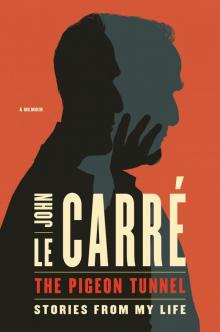 The Pigeon Tunnel: Stories From My Life
The Pigeon Tunnel: Stories From My Life Single & Single
Single & Single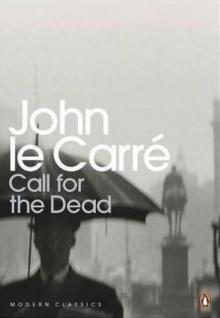 The Spy Who Came in From the Cold
The Spy Who Came in From the Cold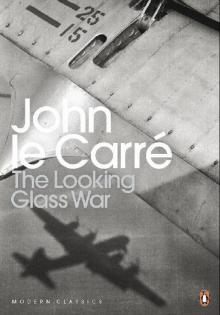 The Looking Glass War
The Looking Glass War The Night Manager
The Night Manager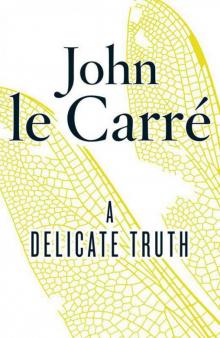 A Delicate Truth
A Delicate Truth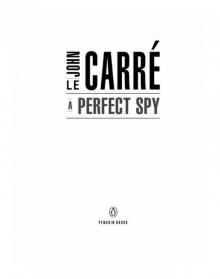 A Perfect Spy
A Perfect Spy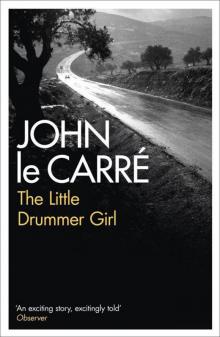 The Little Drummer Girl
The Little Drummer Girl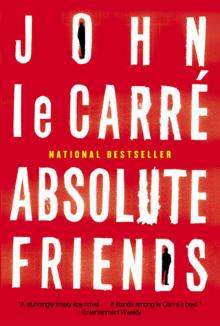 Absolute Friends
Absolute Friends A Murder of Quality AND Call for the Dead
A Murder of Quality AND Call for the Dead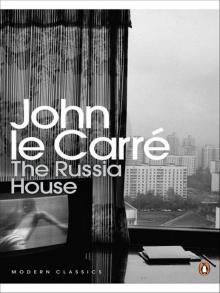 The Russia House
The Russia House The Tailor of Panama
The Tailor of Panama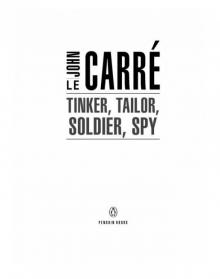 Tinker, Tailor, Soldier, Spy
Tinker, Tailor, Soldier, Spy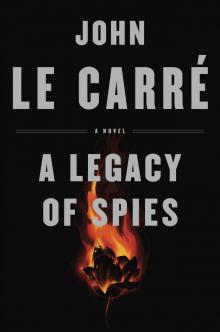 A Legacy of Spies
A Legacy of Spies The Mission Song
The Mission Song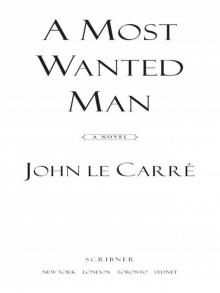 A Most Wanted Man
A Most Wanted Man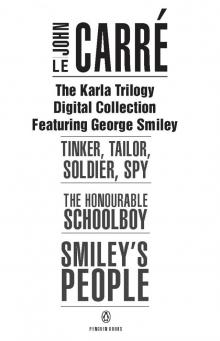 John Le Carré: Three Complete Novels
John Le Carré: Three Complete Novels The Secret Pilgrim
The Secret Pilgrim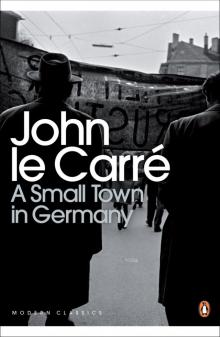 A Small Town in Germany
A Small Town in Germany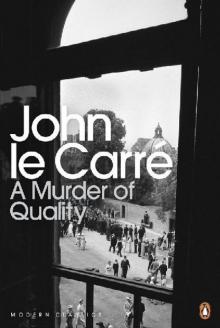 A Murder of Quality
A Murder of Quality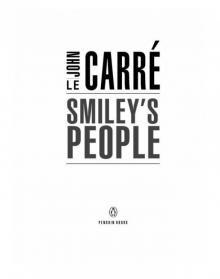 Smiley's People
Smiley's People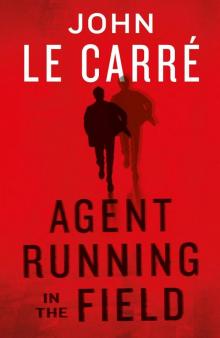 Agent Running in the Field
Agent Running in the Field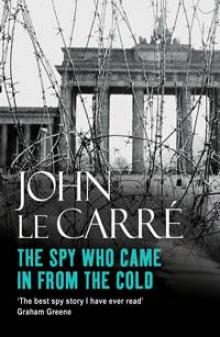 The Spy Who Came in from the Cold s-3
The Spy Who Came in from the Cold s-3 The Pigeon Tunnel
The Pigeon Tunnel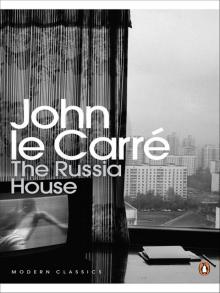 The Russia House - 13
The Russia House - 13 The Honourable Schoolboy
The Honourable Schoolboy Call For The Dead s-1
Call For The Dead s-1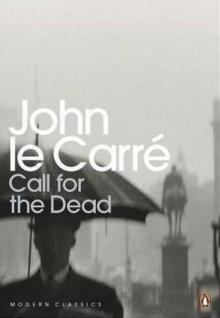 Call for the Dead
Call for the Dead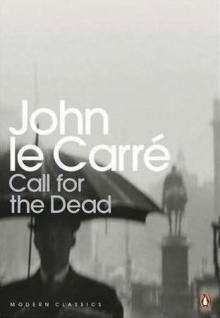 Call for the Dead - 1
Call for the Dead - 1